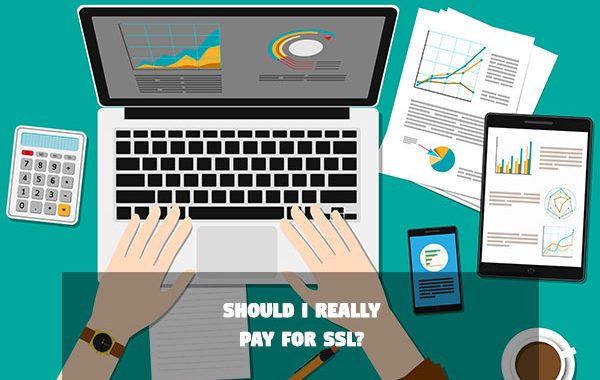Nothing in life is truly free. There’s always a catch. SSL certificates are no different. Yes, you can receive a free SSL certificate but it’s going to be extremely limited. That makes the “free SSL vs paid SSL certificate” debate a bit more complicated than it may seem at first.
After all, why pay for the cow when you can get the milk for free?
Here’s why:
Free SSL vs Paid SSL — We Hope You Like Vanilla
Free SSL comes in one flavor: single domain validation (DV). All that’s required is a simple domain control check. But that’s your only option with free SSL. Let’s Encrypt offers a wildcard, but there’s a very narrow set of circumstances you need to meet before it’ll issue you one. For the most part, all free SSL certificates are single domain.
You get a lot more versatility with paid SSL certificates. Have multiple domains? There’s a certificate for that. A buttload of subdomains? There’s a certificate for that. Both? There’s a certificate for that, too.
You can also get business authentication SSL certificates from commercial CAs, too. There’s no free extended validation (EV) certificate. Not even a free organization validation (OV) one. If you want anything besides a single domain DV certificate, you’ll need to go the paid SSL route.
Free SSL vs Paid SSL — 90 Days is All
Free SSL certificates last just 90 days before they expire. Then you have to swap it out for a new one. That’s four times as much work and four times as much risk. Paid SSL certificates can be issued up to two years (though validity will likely be shortened to 12 months next year). That means you can worry about SSL/TLS a lot less than you would have to if you go the free SSL route.
Free SSL vs Paid SSL — Good Luck Managing All That
Free SSL certificates don’t come with any kind of consolidated certificate management solution. They’re issued four times as often, but good luck managing all that without having a proper certificate management solution. Paid SSL comes with a management platform, whether it’s through the vendor or the certificate authority (CA) — there’s an interface where you can manage everything all at once.
Let’s Encrypt doesn’t offer anything like that, which means you either have to go pay for a management platform or just use spreadsheets. And we know that the manual route never goes well and often leads to:
- Shadow SSL certificates,
- Certificate expiries,
- Site downtime and outages.
Free SSL vs Paid SSL – Paid SSL Scales Better
There’s simply no way you could use free SSL on an organizational level once you get to a certain size. Plus, you’re likely going to need other types of digital certificates — and those aren’t free, either. At that size, it just doesn’t make sense to go the free route. There’s significant risk associated with using 90-day DV certs at the enterprise level. There’s also an incentive to go the paid route because enterprise pricing is much lower than paying retail.
Need Support? Read This
When you have an issue with a product — not just troubleshooting but problems with issuance, revocation, or virtually anything — don’t you like to be able to talk to another person about it? Or at least a chat bot? Good luck getting that with free SSL. These free CAs crowdsource everything from their funding to their support. There’s no one to answer the phones — they may not even have phones! It’s a skeleton crew doing everything it can just to keep the doors open. So, if you have problems or “technical difficulties,” you’ll need to sift through old web forum posts hoping to find a solution. There’s not even a knowledgebase to aid you with free SSL certificates!
Paid SSL certificates come fully supported. Need something? Just call — 24/7, 365 days a year.
Free SSL vs Paid SSL – What’s Right for You?
If you’re just running a personal website, a blog, or some kind of brochure site, then a free SSL certificate will be fine. After all, they offer the same encryption as paid SSL certificates. But they’re not for doing business. It’s low rent, it’s limited, and it scales poorly. Yes, you can get it for free — which the same can be said about condoms — but when it breaks, you’ll have no one to cry to but yourself.

